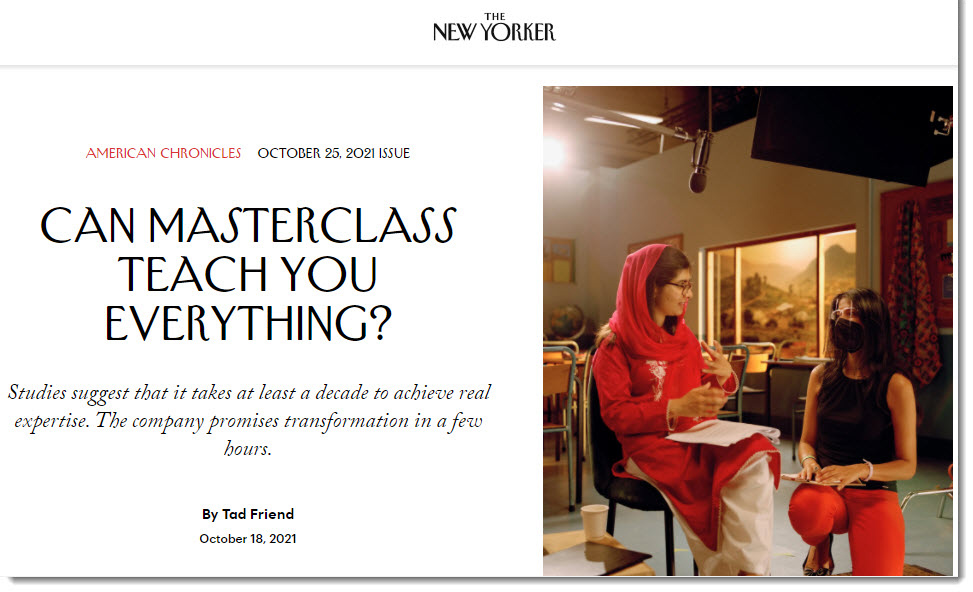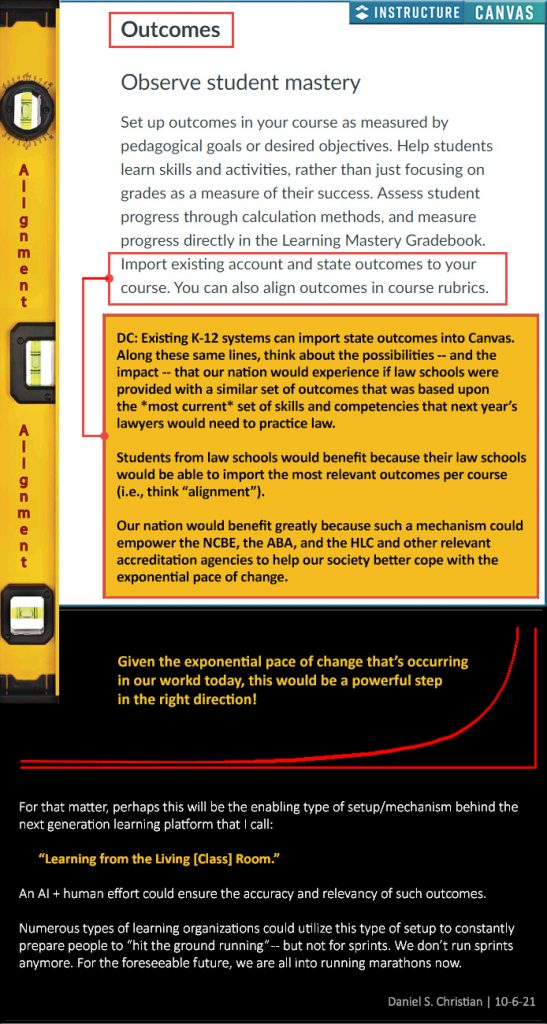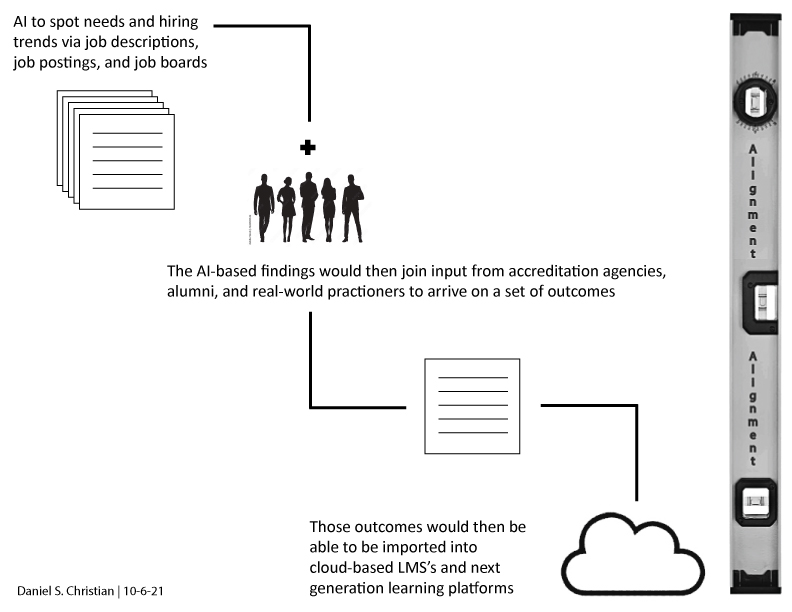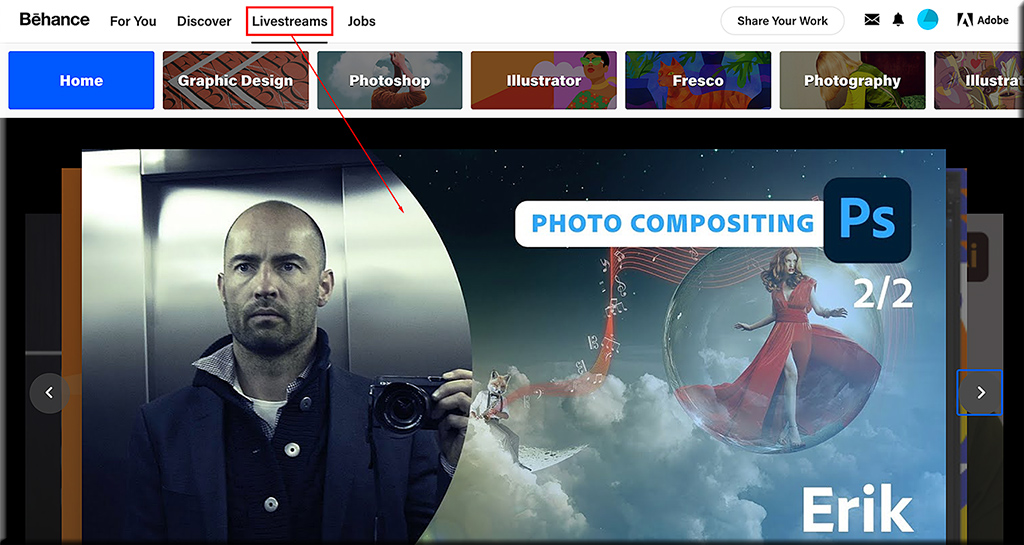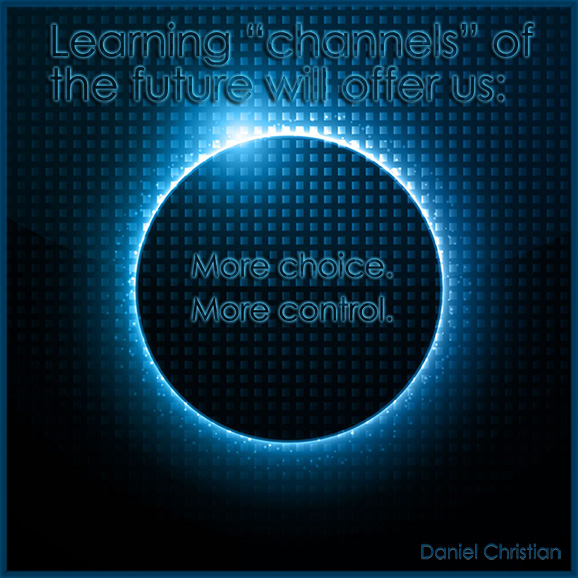Surviving Among the Giants — from chronicle.com by Scott Carlson
As growth has become higher ed’s mantra, some colleges seek to stay small.
Excerpts:
The pressures on the higher-education business model are changing those attitudes. The Council of Independent Colleges’ fastest-growing initiative is the Online Course Sharing Consortium, which allows small colleges to offer certain courses to students at other institutions. Currently, there are 2,200 enrollments among almost 6,000 courses on the platform.
“The higher-ed business model is broken,” says Jeffrey R. Docking, who has been president of Adrian College for 16 years. “But where it’s most broken — and the first ones that are going to walk the plank — are the small private institutions. The numbers just don’t work.” Combining some backroom functions or arranging consortial purchases is just “dabbling around the edges” — and won’t get close to driving down the cost of tuition by 30 to 40 percent over the next several years, which is what Docking believes is necessary.
From DSC:
Docking’s last (highlighted) sentence above reminds me of what I predicted back in 2008 when I was working for Calvin College. The vision I relayed in 2008 continues to come to fruition — albeit I’ve since changed the name of the vision.
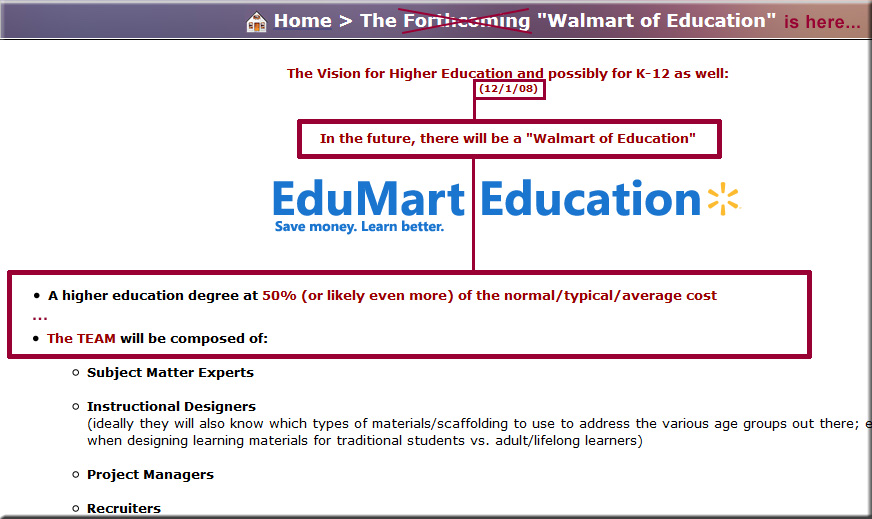
From DSC (cont’d):
I was trying to bring down the cost of higher education — which we did with Calvin Online for 4-5 years…before the administration, faculty members, and even the leadership within our IT and HR Departments let Calvin Online die on the vine. This was a costly mistake for Calvin, as they later became a university — thus requiring that they get into more online-based learning in order to address the adult learner. Had they supported getting the online-based learning plane off the runway, they could have dovetailed nicely into becoming a university. But instead, they dissed the biggest thing to happen within education in the last 500 years (since the invention of the printing press).
Which brings me to one last excerpted quote here:
“For so many years,” Docking says, “all of these really smart people in Silicon Valley, at the University of Phoenix, at for-profits were saying, We’re going to do it better” — and they came around with their “solutions” in the form of MOOCs, or massive open online courses, and other scaling plans. Small colleges didn’t want to hear it, and, Docking says, maybe it was to their peril.









